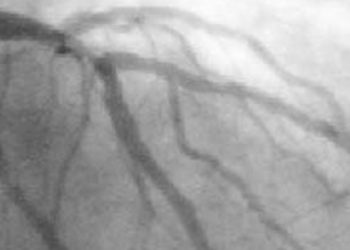Vitamin D3 supplementation not effective in preventing ventricular hypertrophy
1. Among adults older than 50 years of age, vitamin D3 supplementation did not have significant effects on cardiac structure and function after two years.
Evidence Rating Level: 1 (Excellent)
Vitamin D deficiency has been increasingly prevalent globally, especially with more time spent indoors in recent years. Research investigating animal models suggests that vitamin D may exert direct antihypertrophic effects on the heart, ultimately leading to regression of left ventricular hypertrophy (LVH) and subsequent improvements in both systolic and diastolic left ventricular function. However, there is a paucity of evidence regarding the effect of vitamin D on the cardiac structure of humans. In this randomized controlled trial, 25871 adult participants were randomized to either receiving vitamin D3 or placebo. After enrollment, all participants underwent transthoracic echocardiography at baseline and then two years after. The results of this study showed that the change in left ventricular mass, intraventricular septal thickness, posterior wall thickness, and relative wall thickness did not significantly differ between the vitamin D and placebo groups. Compared to the placebo group, there was a slight increase in left ventricular end-diastolic diameter in participants belonging to the vitamin D group. In conclusion, the results of this study showed that supplementation with vitamin D3 did not significantly contribute to changes in cardiac structure, systolic function, or diastolic function over a 2-year period. These findings do not support the role of vitamin D3 supplementation in changing cardiac structure and function among adults older than the age of 50. The large sample size of this paper increases the validity of these results. However important limitations to note include the limited follow-up duration of this study. It is uncertain whether an extended follow-up period greater than two years could reveal cardiac structure changes with vitamin D3 use. More research and randomized controlled trials with a longer follow-up period should be conducted to thoroughly assess for long-term cardiac changes after vitamin D3 supplementation.
Click to read the study in JAHA
Image: PD
©2022 2 Minute Medicine, Inc. All rights reserved. No works may be reproduced without expressed written consent from 2 Minute Medicine, Inc. Inquire about licensing here. No article should be construed as medical advice and is not intended as such by the authors or by 2 Minute Medicine, Inc.







